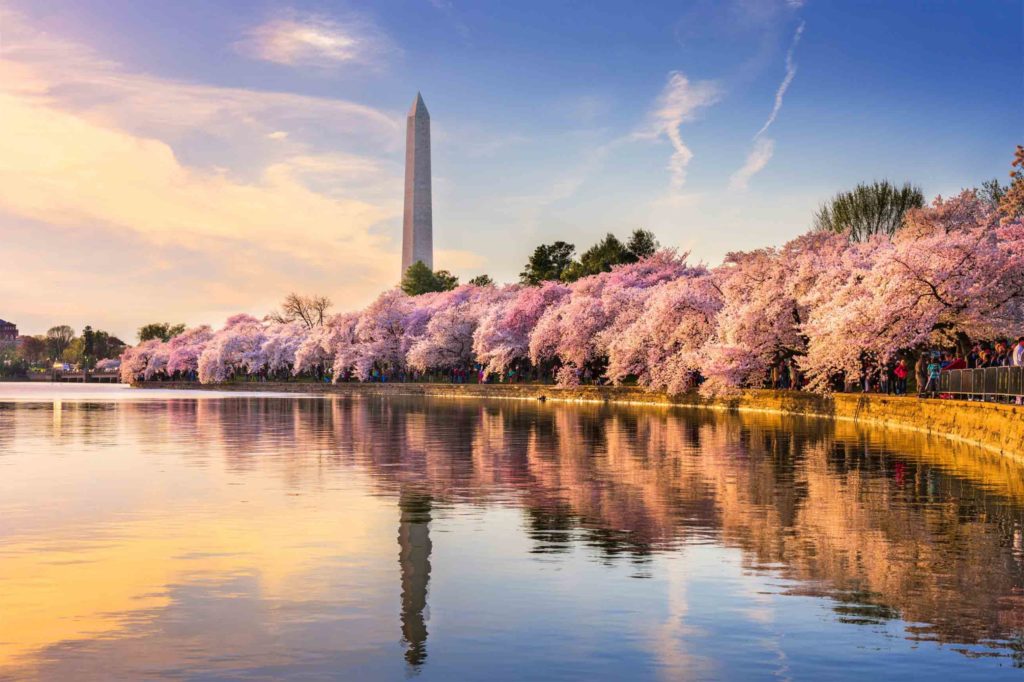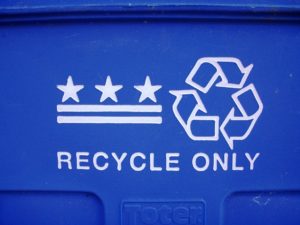 The US capital has been making gains towards zero waste over the past decade, slowly implementing legislation while supporting both businesses and communities on their zero-waste journeys. In fact, in 2015, DC was ranked within the top ten cities for working towards zero waste goals.
The US capital has been making gains towards zero waste over the past decade, slowly implementing legislation while supporting both businesses and communities on their zero-waste journeys. In fact, in 2015, DC was ranked within the top ten cities for working towards zero waste goals.
The repercussion of this has seen the residential recycling rate rise from 16% in 2014 to nearly 30% in 2019, which is now almost on-par with the national average rate of 32%. This is largely due to the Department of Public Works getting serious about implementing waste reduction policies and reaching out to the public to drive greater engagement.
Here, we take a look at the actions towards zero waste DC has taken, and the options the community has to help combat waste in their daily lives.
District Zero-Waste Initiatives
Washington DC is a C40 city and signatory of the Advancing Towards Zero Waste Declaration, which means the district has committed to specific goals in efforts to implement zero waste. DC has set the deadline of 2032 to achieve the following goals:
-
- Reduce food waste by 60% compared to 2015
- Reduce per-capita waste generation by 15% compared to 2015
- Reuse 20% of all waste produced in the District
- Achieve 80% waste diversion without landfill, waste‐to‐energy facilities, or incinerators
These goals form a part of the Sustainable DC Plan, the district’s comprehensive strategy to improve the quality of life for residents while reducing environmental impact. Yet even before it established a sustainability plan, DC was proactive in implementing policies to reduce waste.
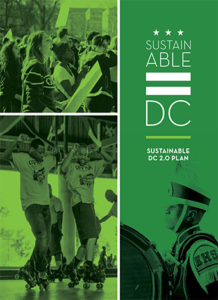
Source: sustainable.dc.gov
Washington DC’s zero-waste efforts truly began in 2014 with the Sustainable Solid Waste Management Amendment Act, which set forth the requirement of creating a zero-waste plan specifying, for the first time, an 80% waste diversion goal.
Also, in 2014, both electronics and paint manufacturers were mandated to collect, recycle, or safely dispose of their own products instead of making consumers responsible. The use of Styrofoam food containers has also been banned since 2016, with retailers and organizations that serve food now required to use recyclable or compostable containers exclusively.
So far these efforts seem to be working, having raised the residential waste diversion rate from 21% in 2015 to 25% in 2020. However, there is still little information on how these policies and other efforts have affected waste generation itself, or commercial waste generation and recycling rates.
Zero-Waste Stores in Washington DC
Ditching single-use packaging and disposable items is important in stemming the tide of waste generation, and DC residents have no shortage of places to go to stock up on low-waste sundries. Package Free DC has a comprehensive list and map of zero-waste grocery stores in Washington DC, but here are some of the most popular:
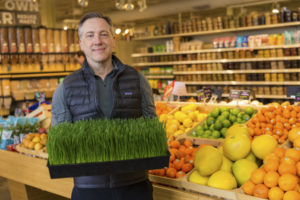
Source: nwc.news
Mom’s Organic Market
This famous chain of organic stores promotes zero-waste lifestyles throughout the northeastern states with a huge variety of products available in bulk, including food and household products. They also collect items that are difficult to recycle, like clothing, shoes, and even eyeglasses.

Source: masonandgreens.com
Mason & Greens
A true zero-waste store that sells everything from catnip and maple syrup to body lotion and paper towels, all available in bulk. They also offer a huge selection of homeware and personal care goods designed to reduce plastic waste.
The area also has a large number of regular farmer’s markets, arguably the best place to buy fresh food with zero waste in and near Washington DC. Fruit and vegetables come wrapped in their “natural packaging” and can be taken home as-is or in reusable produce bags, and most vendors are more than happy to put cheese, meats, and other products into a glass or reusable container.
For those who can’t make it out to the store, there are delivery options as well:

Fulfillery
Offering ethical cleaning products for both home and body in plastic-free packaging or as bulk products in refillable containers. They previously operated as a pop-up shop but have now gone online and will not only deliver products but also pick up empty containers for reuse.

Source: getgroceries.delivery
GetGroceries
On-trend with the huge rise in grocery delivery, this startup delivers groceries in reusable packaging using electric vehicles. It was founded by DC-area company Design by Freedom, as part of its mission to “make trash history”.
Minimizing Food Waste in Washington DC
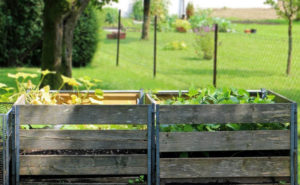
Source: dcfoodrecovery.wordpress.com
Reducing food waste is part of the district’s zero-waste goals. The DC Food Recovery Working Group was established in 2015 to help educate the public and develop programs to recover food scraps, working with public and private partners to promote food waste reduction, donations of excess food, and composting.
Composting is another zero-waste solution that the Washington DC government has been proactive about. The district not only provides food waste drop-off points at farmer’s markets for compostable food waste, but also organizes workshops on composting at home. Further to this, to help make composting at home more accessible from a financial perspective, anyone who has completed a workshop becomes eligible for a small rebate on any home composting system they purchase.
Compost Crew also runs a separate pick-up service for residents that may find it difficult to compost at home or bring food waste to designated drop-off points. For a small monthly fee, members are given a sealable collection bin that is picked up and replaced each week, and the food waste is taken away for composting. Included in the membership fee is fresh soil, delivered twice per year.
Zero Waste for Businesses and Schools in Washington DC
The Zero Waste DC portal has committed to supporting businesses and schools in its ambition towards zero waste, providing a number of resources that can help any organization implement better waste management and diversion practices.
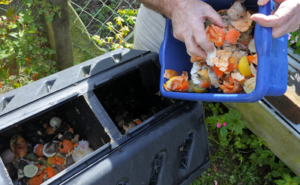
Source: zerowaste.dc.gov
Including comprehensive signage for all areas of a building in English, Spanish, Amharic, Chinese, French, Korean, and Vietnamese, DC is also committed to ensuring the message gets across to all of its citizens, helping businesses and schools raise awareness while also streamlining waste reduction and recycling within buildings themselves.
A range of webinars and other multimedia resources are available on the site to offer clear and engaging advice and guidance on recycling and other areas of waste management—the ideal tools to raise awareness on zero waste for staff and students alike. Additionally, zero-waste presentations can be requested at your premises, with a member of the Department of Public Works Office of Waste Diversion delivering the latest updates on recycling and waste reduction in the city.
DC-area businesses looking to further improve their waste diversion rates can also engage reliable waste management partners to both advise on waste reduction and orchestrate more efficient waste management plans. The real test will come over the next few years as Washington DC expands its zero-waste strategy to spur more residents, businesses, and other organizations to truly engage in zero-waste lifestyles.
Get more information on going zero waste at home and in your business by subscribing to zerowaste.com today. Alternatively, arrange a chat with one of our TRUE Advisors to learn how your business can work towards zero waste.

